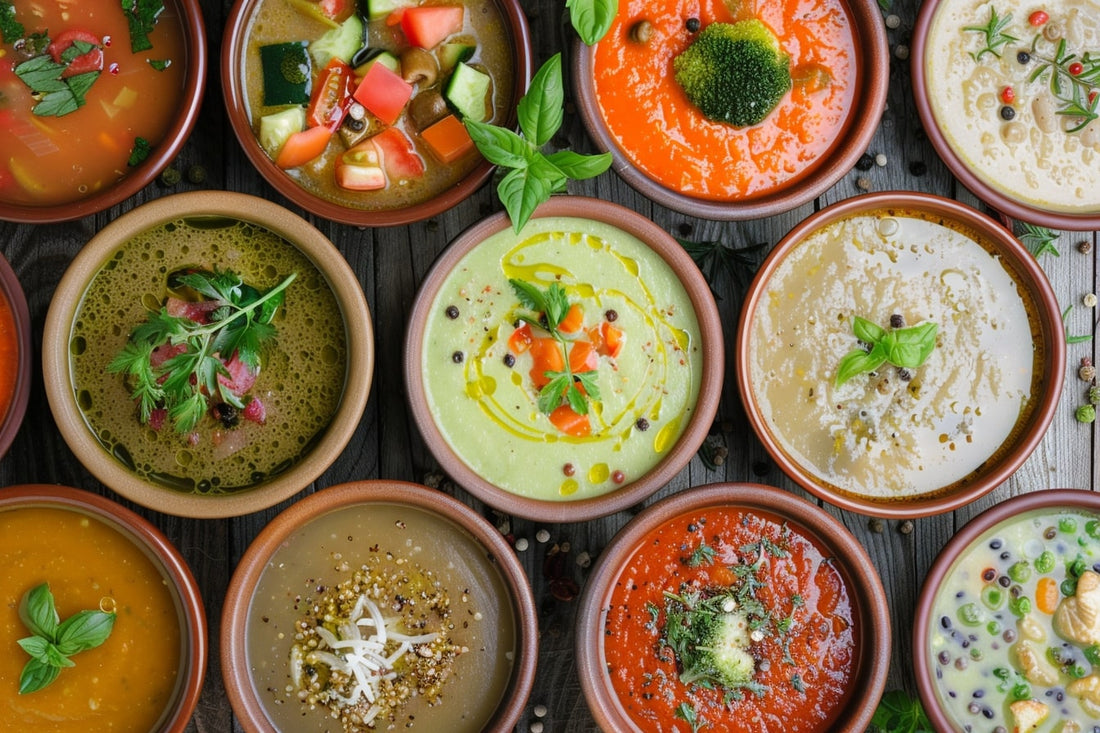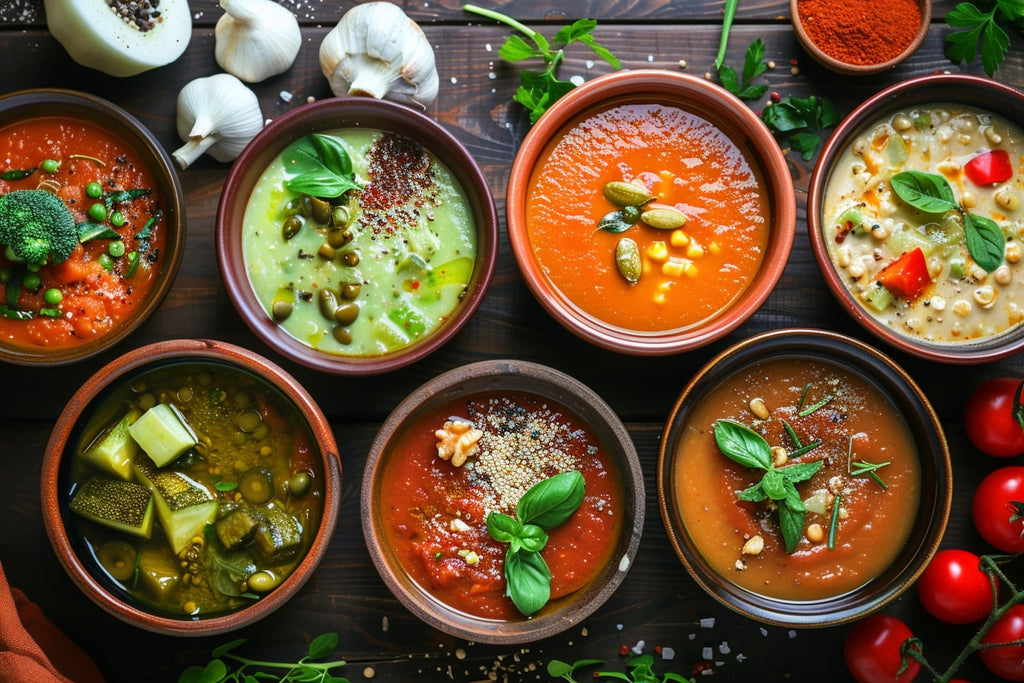What Is Souping Diet: the Secrets of Weight Loss When Eating Soups

Typically, most US people eat soups at least once a week or at least stats say so. They are yummy and nutritious, and they provide us with a necessary amount of vegetables, proteins, and (what is even more significant) liquid. Yet, do you know that you can lose weight while eating soups? At least, the developers of the so-called souping diet insist on this magic feature of their healthy eating method. Let’s consider how soups may help with maintaining a dietary menu and how they impact our weight.
The Principle of Souping Diet: How Does It Help To Lose Weight
In recent years, souping acquired the same level of popularity as juicing did before. The reason for this is quite logical. What are soups consisting of? Mostly, it is water in the form of a broth. Additionally, soups consist of various vegetables, herbs, protein sources, oils, and sometimes – some kinds of carbs i.e., pasta or dumplings. Sounds healthy, doesn’t it?
The core principles of souping for weight loss and control are as follows:
- Soups are typically cooked with fewer fats and fewer carbs than any main course, thus, they are dietary.
- Soups mostly consist of liquid, so they provide high satiety without eating lots of food, just because your stomach is filled with consuming liquid.
- Soups provide you with vitamins and minerals from vegetables, meat, and fish. Although while cooking these vitamins may be lost, a considerable amount of them remains in the meal.
- At last, soups are not a comfort food, and most people eat them without overeating.
Yet, the souping diet also has some specific features you should know in advance.
- You need to cook them regularly to maintain food diversity in your menu and eat fresh meals, as soups tend to turn sour very quickly because the liquid is a favorable environment for bacteria.
- Eating only soups is hazardous to people who have kidney problems due to the large amounts of liquid they consume with soups.
- Souping will be effective for your health if you thoroughly select raw products for your meals. You should consider that some vegetables may contain too many nitrates, and it is better to select organic meat and veggies for your souping diet.
- When you maintain a souping diet, you need additional support for your digestion. Thus, you need to increase fiber consumption to maintain normal digestion.

Lastly, do not forget that souping supposes you will eat only soups 5-6 times a day. It’s great if you are a soup appreciator or belong to a population where soups are ubiquitous, for example, for Japanese or Chinese people. If you are not used to consuming soups, maintaining a diet which is based on that kind of meal can be hard for you.
Which Soups Suit Dietary Goals and Which You Should Avoid If Maintaining Healthy Eating
Souping is not an ultimate diet with a limited number of dishes to select from. Even in terms of this dietary approach, there are several directions:
- Vegetable souping allows you to consume only vegetable-based soups. Yet, a lack of proteins makes this kind of diet a sprint, not a marathon. So, it is better to use it no more than 7 days in a row to provide detoxing to your body.
- Vegetable+protein soups are the most balanced, so that kind of souping can become your habit.
- Keto souping refers to a keto diet combined with souping ideas. Yet, it is better to use it if you have no strict contraindications for keto eating.
As for the selection of meals, you should remember that soups are quite different. There are over 250 types of soups around the globe and while some of them are good for diets, others may be a true calorie bomb.
For example, a classy borscht or zhurek cooked on pork ribs and lard doesn’t suit weight loss, as well as cream-based soups, soups served with crackers or croutons. Instead, you are welcome to eat soups like chicken soup with vegetables, and vegetable soup (these two are the most loved by Americans, as stats claim). Most Italian and Mediterranean soups also fit the healthy eating and weight loss goals. In general, the principles of dish selection for a souping diet are as follows:
- Soups should contain mostly vegetables, especially carrots, celery, cabbage, and others high in fiber vegetables.
- Broth should be made of vegetables, dietary poultry, seafood, fish, or beef.
- No canned soups or semi-products.
- Better avoid dairy products in soups and butter for their cooking. Olive and other vegetable oils are possible in moderate amounts.
- No pasta or dumplings should be added to the soup to reduce carbs.
It’s reasonable that healthy soups mostly fit dietary goals. Thus, if you are looking for a source of inspiration for your souping, you are welcome to read our article devoted to healthy soups.
The Diversity of Soups for Your Diet – How to Ensure It
The best way to lose weight using soup is to cook it yourself. Yet, it is not always real. Thus, we offer you to get our help to maintain your souping weight loss goals. In 95 Nutrition, you can find lots of healthy soups, seasonal menu soups, and eternal classic recipes which fit souping principles. Just select what tastes you the most and order to get your fresh and healthy soup daily.